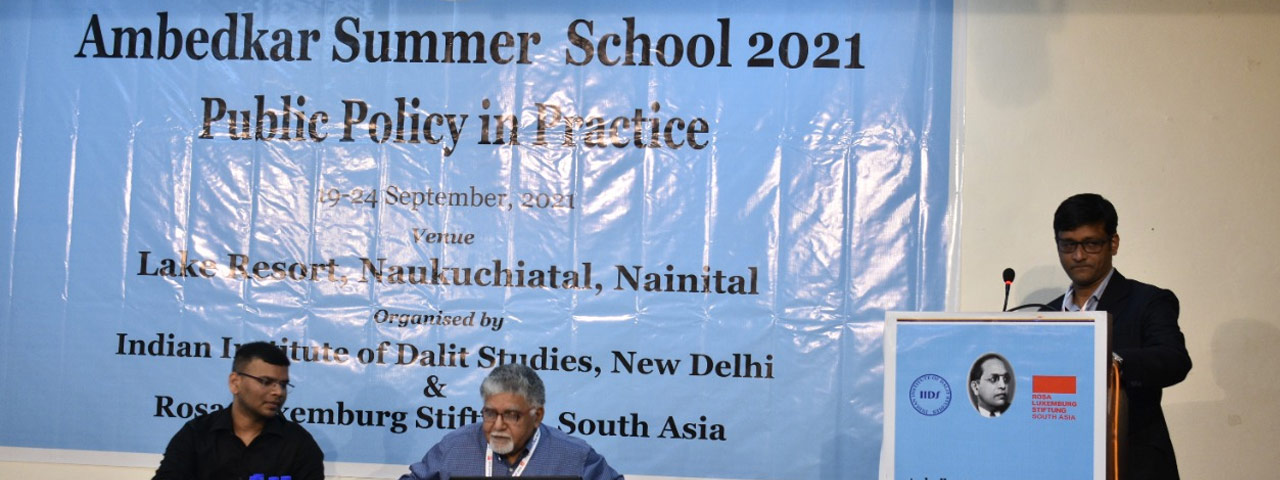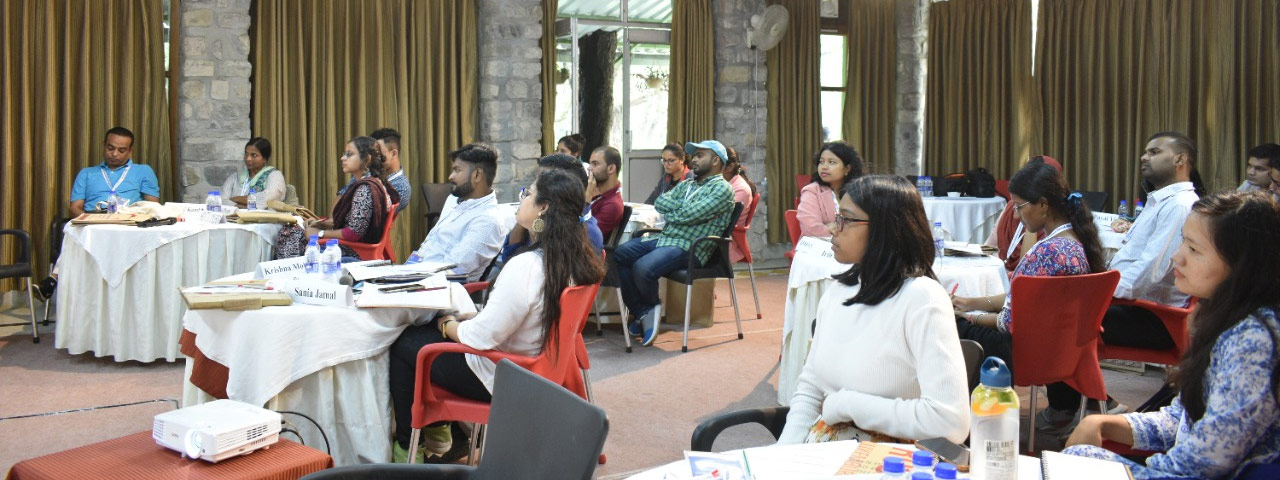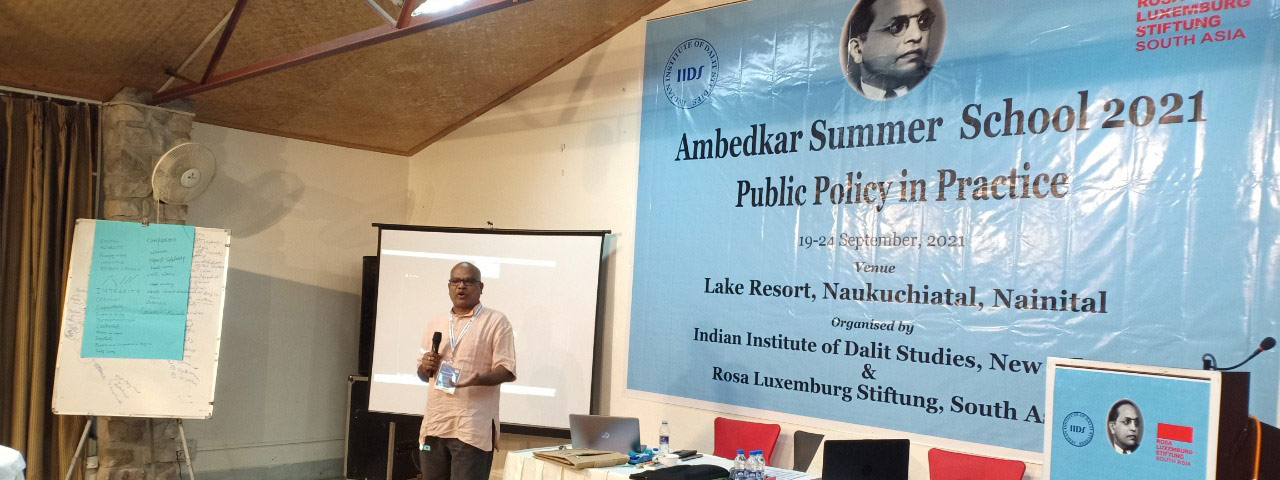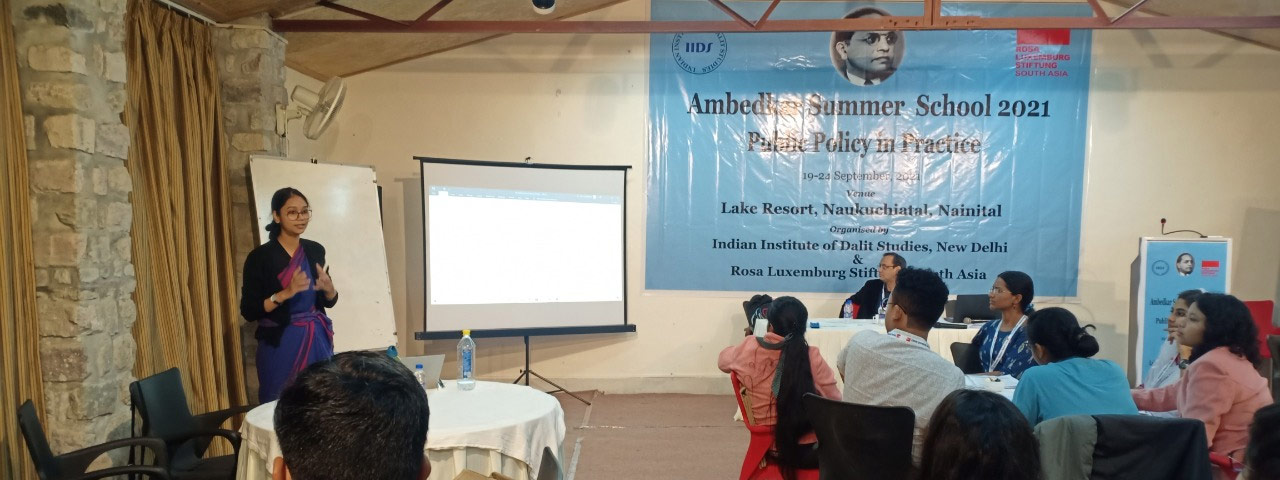Ambedkar Summer School Programme
Ambedkar Summer School is organized by Indian Institute of Dalit Studies and Rosa Luxemburg Stiftung, South Asia since 2019. Since its inception, three Ambedkar Summer Schools have been organised. So far, more than 100 participants from various social groups and regions/states in India have attended the Ambedkar Summer School. Ambedkar Summer School, a week-long residential programme, aims to enhance the capacity of youths from the marginalized social groups through reading, writing and discussion. It has become very popular among young scholars and activists. This prestigious programme provides opportunities to youths to exchange their ideas and knowledge and contribute immensely in capacity building. This programme has given lifetime opportunity and exposure to many scholars/activists from remote areas. It has helped them to become critical and vocal of discrimination, exclusion and atrocities and be pioneers in making a better society. The participants will be selected through call for applications.


The participants of Ambedkar Summer School are well connected through various platforms and share their knowledge and experience related to exclusion, discrimination, social movements, etc. They have become very effective cohorts who are emerging as future leaders/scholars/activists.This programme has given lifetime opportunity and exposure to many scholars/activists from remote areas. It has helped them to become critical and vocal of discrimination, exclusion and atrocities and be pioneers in making a better society.
Ambedkar Summer School - #2021

Social exclusion indicates the process by which some particular groups are excluded from their engagement in public domain and discriminated from important activities due to their social positioning in the hierarchical structure. It involves the rebuttal of equal and fair opportunities to certain social groups. Any kind of unfair inclusion or exclusion with differential treatment has adverse consequences, such as low and unequal access to employment opportunities, labour markets, health, education, food security, housing and participation in governance. Social exclusion deprives people of their civil, religious, political and cultural rights. It also creates incapability among the discriminated social groups which poorly affects their participation in the basic economic, social, political and cultural functioning of the society.
It is in this context of discrimination and exclusion that there is a demand for government public policy to ensure the protection of the marginalized groups. Public policy often framed with an aim to annihilate individual and group exclusion. In the former case, the focus is majorly on the measures to develop individual capacities and entitlement. The increasing public advocacy on social welfare in India led to an increase in the welfare schemes. As a result, many flagship welfare schemes based on rights approach and social security were introduced. Many of the public policies in India are formulated on the basis of the principle of social justice, equality of opportunity, fair inclusion and empowerment of marginalized communities. These public policies have the potential to increase the possibilities of economic and social mobility. It seeks to bring inclusive growth and service delivery by the mechanism of targeted and regional equity components.
However, it is significant to note that the government schemes and public policies in India are subjected to criticism due to corruption, lack of accountability, weak design and failure in implementation. Many of the public policies or the government-funded social sector schemes are not much effective to achieve its outlined goals. There are instances where the government flagship programmes fail to effectively address the problem of exclusion. Some policy frameworks or policy documents do not make any attempt to formulate any cohesive and comprehensive plan to address social exclusion. There are data which signaled the fact that the development outcomes across various sectors are disproportionately worse for certain social groups, such as SCs, STs, OBCs, minorities and women in compared to other dominant social groups. There are thus many gaps in those public schemes in terms of its inability to tackle the issues related to exclusion, segregation and stigma. It is important to make public policies more effective and inclusive.
During the Ambedkar Summer School, various sessions will focus on comprehensive discussions on public policy in practice with reference to the experiences of marginalized social groups.

What our participants say?
Mentorship Programme
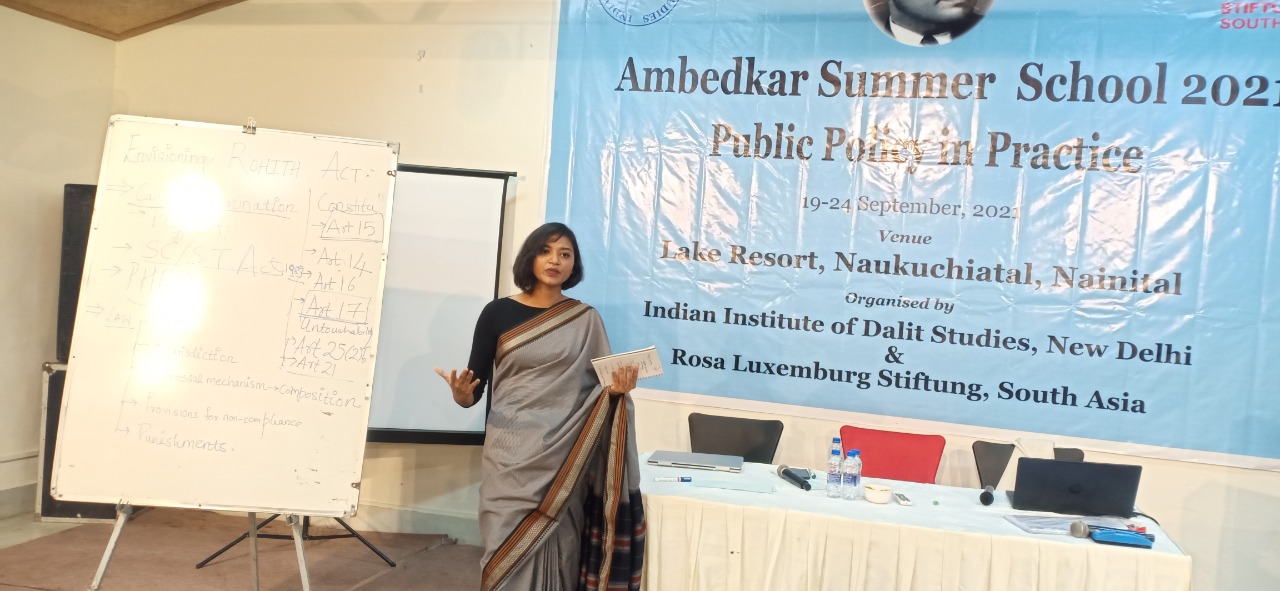
The participants of Ambedkar Summer School have emerged as very effective cohorts who are emerging as future leaders/scholars/activists. The participants are well connected through various platforms. Ambedkar Summer School programme has a component of mentorship for the participants. The mentorship initiatives enable continuous engagements with the participants and help to remove barriers experienced by them. The mentorship panel consists of eminent academicians working on the issues of exclusion and discrimination etc.
How to Apply?
The research scholars and youth activists working on the issues of marginalization and exclusion can apply for Ambedkar Summer School. The interested applicant also need to send detail abstract on the issues of public policy and marginalized social groups. The application should be sent via email to ambedkarschooliidsrls@gmail.com
The organizers will bear the cost of travel (train AC three tier), boarding and lodging during the programme.
